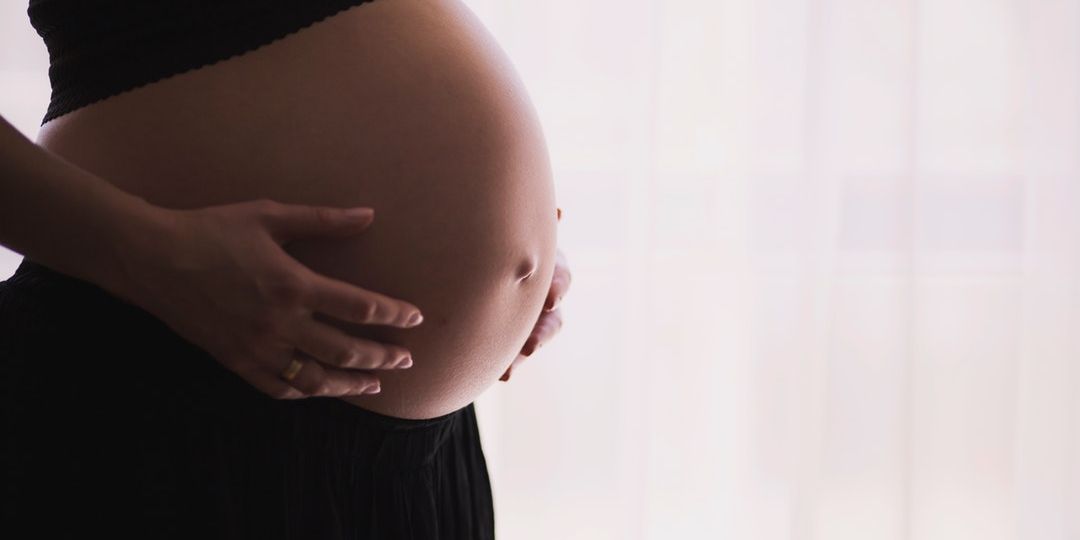
Did you know that many women experience morning sickness throughout their entire first trimester of pregnancy? Morning sickness is hard on anyone, but can be particularly frustrating for women who have busy schedules. This is not to mention that morning sickness symptoms can make it difficult for a woman to eat, sleep, or go about her daily life.
But what is morning sickness exactly, and why does it happen in the first place?
Keep reading and learn more about preventing morning sickness and what you can do to stop it in its tracks.
What Is Morning Sickness during Pregnancy?
Morning sickness tends to occur early in a woman’s pregnancy, sometimes as early as 6 weeks. Many women don’t even know that they’re pregnant at first once they start having symptoms of morning sickness. For that reason, the symptoms of this condition can come as a shock for some women.
Fortunately, morning sickness does not usually last throughout the duration of a woman’s pregnancy. Instead, the symptoms diminish and even go away completely once a woman enters her second trimester which includes weeks 13 to 27 of her pregnancy. However, there are rare cases in which these symptoms may last for the full 9 months.
There are a few common misconceptions about morning sickness. In particular, it does not always occur in the morning. In fact, it can happen at any time of day.
This is one of the many ways in which morning sickness can interfere with a woman’s everyday life. Also, morning sickness does not always include vomiting (although it often does). Instead, a woman may only feel nauseous throughout the day but may not actually vomit.
What You Need to Know
This feeling of nausea may come and go depending on the severity of the woman’s morning sickness. Usually, this nausea will not last for very long. The feeling may come around for a few minutes and then go away, but it may come back several times throughout the day.
Morning sickness is not a serious problem and it is a normal side effect of pregnancy. However, there are some women who experience very severe symptoms of morning sickness. Some women may vomit for hours at a time and they may vomit and feel nauseous very frequently.
This severe kind of morning sickness is known as hyperemesis gravidarum. It can sometimes lead to weight loss and dehydration in the woman which can be dangerous for both her and her developing child. In some cases, the woman may need to be hospitalized for this condition.
Fortunately, most cases of morning sickness are not so severe. Instead, a woman will be able to soothe her morning sickness symptoms in various ways such as with the help of a doula or Bella Mama morning sickness tea.
What Causes Morning Sickness in the First Place?
Before you jump at the idea of going to a luxury spa or pregnancy spa, NZ, you should first understand the potential causes of morning sickness and morning sickness treatments. Scientists are not exactly sure what triggers morning sickness, but it likely has something to do with how a woman’s hormones change during pregnancy.
In particular, the levels of human chorionic gonadotropin (HCG) and oestrogen change quite a lot throughout a woman’s pregnancy. Just as hormonal changes can create changes in one’s appetite and mood, it makes sense that these hormones can also cause changes that correlate with the symptoms of morning sickness. Low blood sugar during pregnancy may also have something to do with these symptoms.
However, some women may experience worse morning sickness symptoms according to various factors in their lives. For example, if a woman is under a lot of stress, she may be more likely to experience morning sickness and more severe symptoms. If she has motion sickness, this sickness may get worse during pregnancy.
Finally, certain foods may nauseate a pregnant woman. These foods may be foods that the woman enjoyed before her pregnancy such as hamburgers, but because the hormones in the woman’s body change so much during pregnancy, the idea of eating a hamburger or the smell of hamburgers may be revolting. However, this may not happen with all women.
The Symptoms of Severe Morning Sickness
The symptoms of morning sickness obviously include vomiting and nausea, but how can you know if you have a severe form of this condition (hyperemesis gravidarum)? If you vomit more than three times a day, you may have hyperemesis gravidarum. The vomiting may go on for several hours and you may be constantly nauseated.
Because of this excessive vomiting, you are likely to become dehydrated as a result. This can be very dangerous. You can tell if you are dehydrated in several ways.
For example, your urine will be unusually dark or you may not be able to urinate at all. You may also feel very dizzy or weak when standing up. Also, due to vomiting, you may lose 3 kilos or more in a very short period of time.
If your hyperemesis gravidarum does not clear up on its own in a short time, you may need to get treatment from a hospital. There, you will get liquid through an IV and you will likely be given medication to suppress your nausea and vomiting.
How to Treat and Prevent Morning Sickness
Motherhood is wonderful and challenging time, and morning sickness is definitely the later. Fortunately, there are many ways to soothe yourself during your pregnancy such as with the best pregnancy spa Auckland has to offer or a pregnancy massage. However, some cases of morning sickness are stubborn and you can’t treat them with the ease of prenatal care.
Preventing morning sickness is particularly difficult. While there is no sure way to prevent morning sickness entirely, there are a few things you can do that can lessen your chances of getting morning sickness or experiencing severe symptoms. To start, you should drink plenty of water.
This will flush out any toxins that may be in your body and, above all, it will keep you hydrated. You should drink water before and after meals as well. Tea is another good option for ensuring you are staying hydrated.
Taking naps is also important. During pregnancy, your body will be under a lot of stress. After all, much of your energy will be directed towards growing a baby and, meanwhile, your hormones will be going crazy. The occasional nap will give your body a chance to relax and rejuvenate.
Of course, you will want to avoid foods that might bother your stomach. This means that you should stay away from spicy foods or foods that are acidic. At the same time, you’ll want to load up on healthy foods such as fruits and vegetables.
These foods are full of vitamins and minerals that can keep you and your baby healthy. If you find that you are particularly sensitive to smell while pregnant, try to stay away from smells that might bother you.
Treatment Options for Morning Sickness
You should focus on simple things that you can do during your pregnancy. For example, if your morning sickness tends to be the worst in the morning, try the Bella Mama wellness tea, or eating some crackers as soon as you wake up.
Crackers are dry and they can help absorb any excess acid you may have sitting in your stomach. To make things easy, keep a box of crackers at your bedside table to eat whenever you feel like it. You will also want to try eating smaller meals than usual.
Instead of eating three meals a day, try eating around five small meals. This will make it easier for your stomach to digest your food. More than that, you won’t feel stuffed after eating and the chance of feeling nauseated will decrease.
But what kind of food should you eat? Bland foods are particularly good for morning sickness. They shouldn’t make you nauseous because they won’t have any strong smells or flavours.
You should also eat plenty of soup. Soup is warm and cosy on the stomach. More than that, it is full of liquid to keep you hydrated along with vitamins and minerals.
Pregnancy and Morning Sickness
When it comes to pregnancy, morning sickness is certainly the worst part. It involves nausea and vomiting that can last until the second trimester or even longer.
Fortunately, there are many pregnancy care practices and natural therapies that you can use to soothe your own morning sickness. Once you get over your morning sickness, you can also treat yourself to beauty treatments, a pregnancy massage, a belly band, or anything else that might make you feel better.
To learn more, contact us here.

